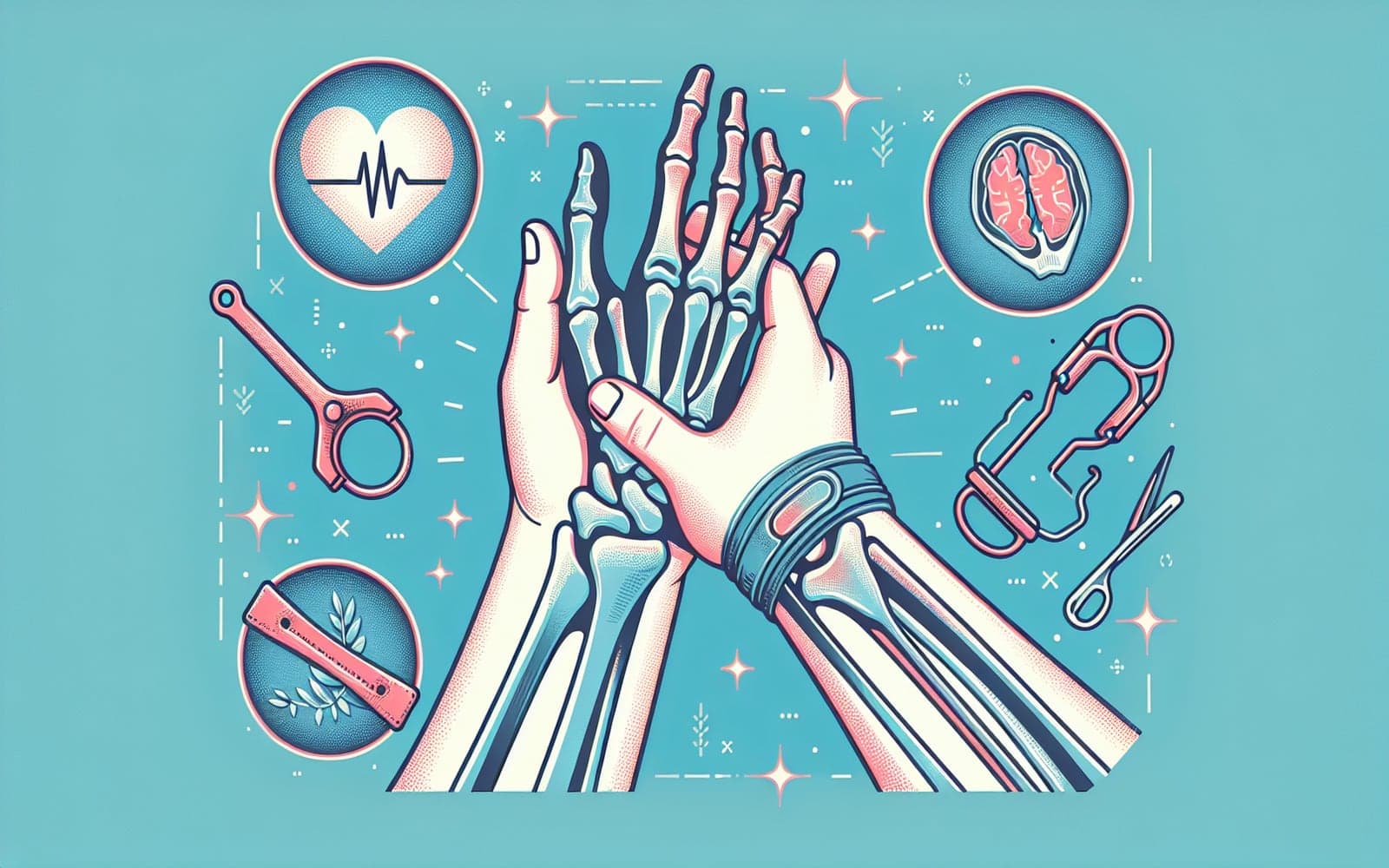What's the Deal with Carpal Fractures?
Published: Jul 30, 2024

Medically reviewed by Allegra Fierro | MD, Icahn School of Medicine at Mount Sinai - New York on July 30th, 2024.
Carpal fractures are a common type of wrist injury that can happen to anyone. Understanding them can help you manage the pain and know when to seek treatment.
Contents
Understanding the Basics
Carpal fractures involve the eight small bones in the wrist. These bones are divided into two rows: the proximal row includes the scaphoid and lunate, while the distal row includes the trapezium and hamate. Fractures occur mainly due to direct or indirect trauma, like falling onto an outstretched hand.
Common Types of Fractures
The scaphoid is the most commonly fractured carpal bone, often from falls. Symptoms include wrist pain and difficulty moving the thumb. Other common fractures include the triquetrum and hamate; each has unique symptoms depending on the injury's specifics.

Diagnosing the Injury
Doctors typically use X-rays to diagnose carpal fractures, but these aren't always reliable. If an X-ray doesn't show a fracture but symptoms persist, more advanced imaging like CT or MRI may be required.
Frequently Asked Questions
They are breaks in the small bones of the wrist.
They usually result from trauma like falls or direct blows.
They make up 55% of all carpal fractures.
Key Takeaways
Recognizing carpal fractures early can lead to better outcomes and less pain.
Curious about your wrist pain? Chat with Doctronic, the AI doctor, for more insights!Related Articles
References
van Onselen EB, Karim RB, Hage JJ, Ritt MJ. Prevalence and distribution of hand fractures. J Hand Surg Br 2003; 28:491.
Suh N, Ek ET, Wolfe SW. Carpal fractures. J Hand Surg Am 2014; 39:785.
This article has been reviewed for accuracy by one of the licensed medical doctors working for Doctronic. Always discuss health information with your healthcare provider.

